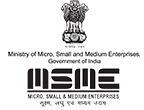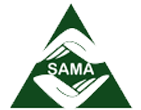WHY DO WE NEED SPECIAL HAZARD FIRE SUPPRESSION SYSTEMS?

It is well-known that manufacturing and industrial facilities are considered dangerous work environments. There are rigorous safety regulations to protect workers and infrastructure, and the materials and machinery used in these facilities often require additional precautions.
With these added safety hazards, it's no wonder that the risk of fire also increases. The leading causes of fires at industrial and manufacturing properties are heating devices, shop tools, and industrial equipment. But traditional water-based fire suppression systems can't adequately suppress these types of fires and often risk causing more harm than good.
Here are three ways special hazard fire suppression systems create safer industrial and manufacturing facilities.
1. Protects Valuable Equipment
'Downtime' is a word that can make any company leader anxious. Downtime means a loss in revenue-and if the downtime is the result of a fire, it can also mean costly equipment repairs or replacements that many companies can scarcely afford.
While this valuable equipment, needs to be protected from fire, it may also be sensitive to traditional water-based fire suppression systems. That's where special hazard fire suppression systems come in.
Special hazard fire suppression systems can be specifically designed to protect your critical production equipment, electrical enclosures, and hazardous storage areas in an effective way that is still safe for your high-value equipment.
Special hazard fire protection needs to be implemented at the machine and cabinet levels. Specific equipment carries inherent fire risk-switchgear, CNC machines, production equipment, telecommunications equipment, etc. To effectively protect the equipment and the facility itself, automatic fire suppression must be targeted to the specific areas where the machines operate.
Similarly, fire protection needs to be considered for enclosed spaces containing fire risks-micro-equipment enclosures, hazardous material storage cabinets, automated storage carousels, etc. Without targeted fire suppression systems for these special hazards, your critical business assets could be putting your entire facility at risk for costly fire damage.
2. Boosts Fire Protection Effectiveness
Many businesses believe they are fully protected from fire because their buildings are up to code. However, most business owners and facility managers don't realize that these codes are put in place to get building occupants out safely before conditions become hazardous-not necessarily to protect the facility itself from fire. The codes usually address whether or not a fire suppression system is required but don't specify the adequacy or quality of the systems related to specific hazards, production equipment, or business assets.
By outfitting your industrial or manufacturing facility with the minimum requirements for water-based fire suppression, you may be following the codes-but are you truly protecting your business? Special hazard fire suppression systems raise the bar for loss prevention in facilities. Many special hazard systems use clean suppression agents that don't leave an undesirable residue after discharge, enabling business-critical operations to resume quickly.
3. Delivers a Faster Response
Fire suppression tactics must be fast-acting and individualized to address the additional hazards in industrial environments. High-quality special hazard fire suppression systems can reach mandatory concentration levels within 10 seconds. The fast-acting nature of these systems helps companies minimize property damage, protect personnel, and save money by avoiding costly equipment repairs and lengthy downtime.
Protect Your Assets with a Professionally Installed Special Hazard Fire Protection System
Special hazard suppression systems quickly detect and suppress fires without interrupting business continuity or causing catastrophic damage to crucial business assets. Due to the complexity of special hazard fire protection, businesses should partner with an experienced fire protection company to design and install a special hazard fire suppression system tailored to the specific hazards present in their facility.
(This "Fire Safety Blogs" Published in August 2023 Edition)













